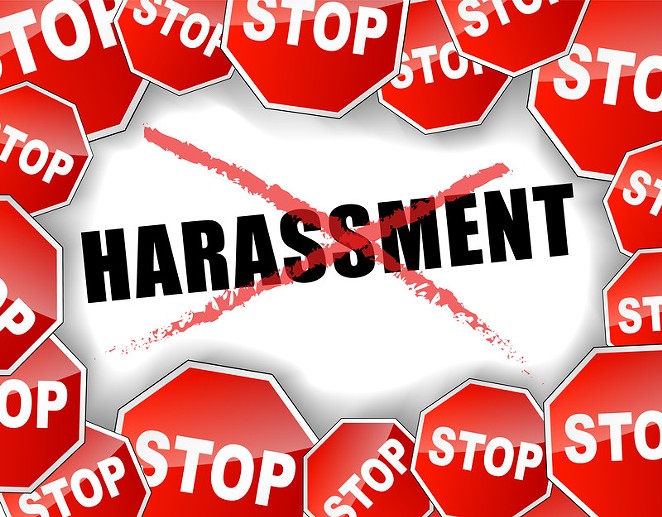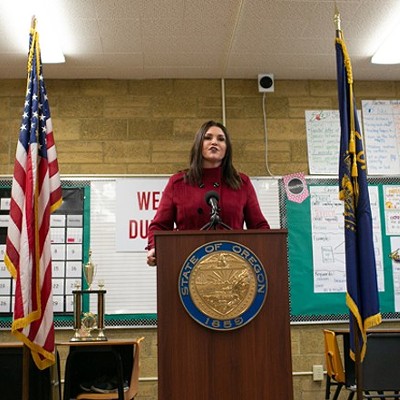Editor's note: This version has been altered from the original version. In the original print version, the text in the third paragraph alluded to Sen. Tim Knopp (R-Bend) being party to contemplations among Republican leadership of a lawsuit against Sen. Sara Gelser. Knopp and Gelser confirmed today that Knopp was not party to that contemplation. Gelser wrote to the Source Thursday: "...when Senator Knopp informed me that there was some discussion among Republicans of suing me or having me disciplined for my complaint, it was very clear he was not part of those discussions and did not condone them." We regret the error.
Things are hot right now in the Oregon Legislature—and the 2019 session hasn't even started yet.
Last week, the Commissioner of the Oregon Bureau of Labor and Industry, Brad Avakian, released a 52-page investigation relating to sexual harassment within the Legislature. The report, stemming from the complaints made by two Oregon female senators against former Sen. Jeff Kruse, detailed how legislative leadership, including House Speaker Tina Kotek (D-Portland) and Senate President Peter Courtney (D-Salem) failed in adequately addressing those complaints. The alleged actions of local lawmakers are also mentioned in the report.
Kruse resigned in February, after the complaints from Sens. Sara Gelser (D-Corvallis) and Elizabeth Steiner Hayward (D-Portland) came forward the previous autumn. According to the new BOLI report, Republican leadership even considered suing Gelser after she made her initial complaint.
According to the report, "Gelser stated that Senator Knopp alerted her that the Senate caucus leadership were in discussions with Senator Kruse about how he could sue her, and how they could have her expelled from the Legislature for having this brought forward." No lawsuit emerged.
To say that the BOLI report has dropped a bomb on the Oregon Legislature is perhaps an understatement. It's a bomb that has us wondering how lawmakers, tasked with creating the laws the rest of us must follow, could misstep so significantly. Was there an adequate process in place to protect alleged victims and alleged perpetrators—and how can businesses and organizations ensure they don't make the same mistakes?
Since the initial complaints against Kruse surfaced, an Oregon State Capitol Workplace Harassment work group was formed, which released recommendations last month for how the Capitol should move forward. The group's final report points out holes in the current harassment policies in the Capitol, including noting that complaints under current personnel rules only allow formal complaints to be filed by "legislators and legislative employees, interns, or volunteers"—excluding others who work in the State Capitol. The report also identified issues around who should investigate allegations of harassment, whether the process should be confidential, and other issues.
The fact that so many holes existed within the policies of Oregon's most prominent governmental body should give us all pause, reminding organizations that it's never a bad time to review their own policies and processes.
Since the emergence of the #MeToo movement, some have expressed concern about false allegations taking down otherwise decent people. That's exactly why organizations and businesses should act now to review their harassment policies, to establish a process for investigating claims and to inform employees about those policies and processes. In the case of the complaints within the Oregon legislature, there was some uncertainty about whether the complaints should be handled by the Legislature's own Conduct Committee, or by BOLI. The complainants in that case ultimately opted to go outside their own organization to seek help.
"There were women calling me and this agency that needed help," BOLI's Avakian said in an interview with Oregon Public Broadcasting. "They needed a place to voice their concerns, and they didn't feel like they had one."
Similarly, workers—and contractors and laypeople—have the option to file a complaint within the organization in which they work, or to turn to BOLI or the U.S. Equal Employment Opportunity Commission. Both of those agencies offer guidelines and trainings for employers, in addition to fielding complaints and conducting investigations around workplace harassment.
The bottom line: Watching a debacle inside a high-level government agency demonstrates that even those most informed of law and policy can misstep—but taking steps now to keep employers and employees informed is one big first step in preventing such a debacle inside your own organization.

























